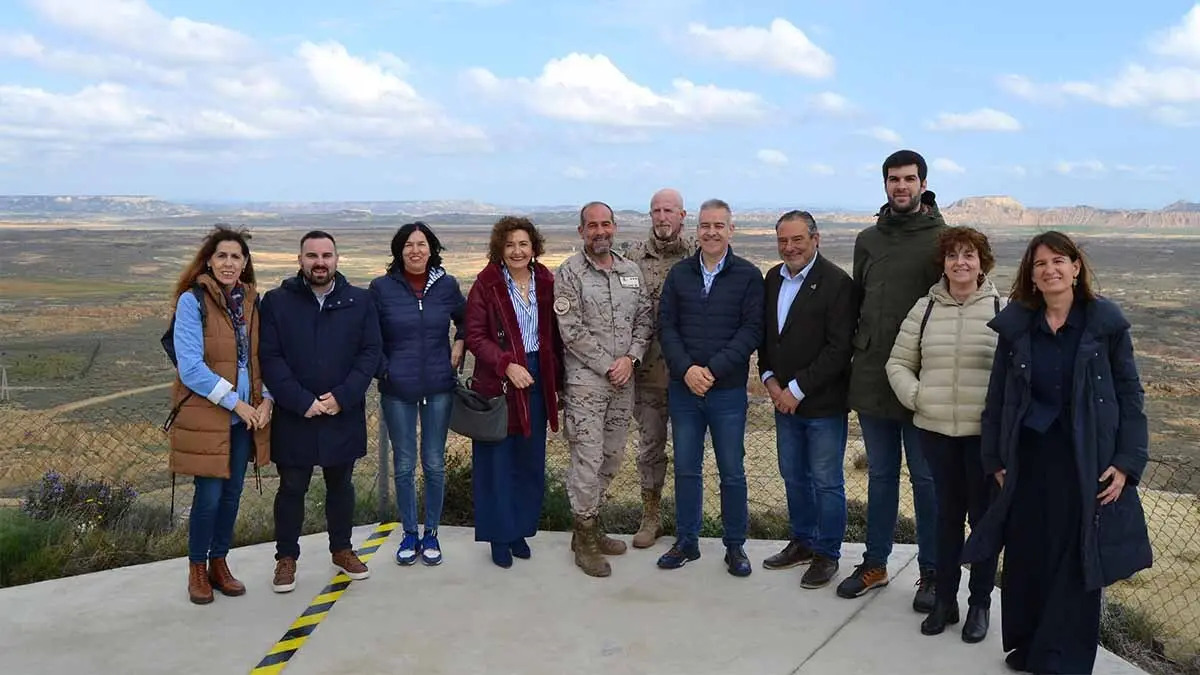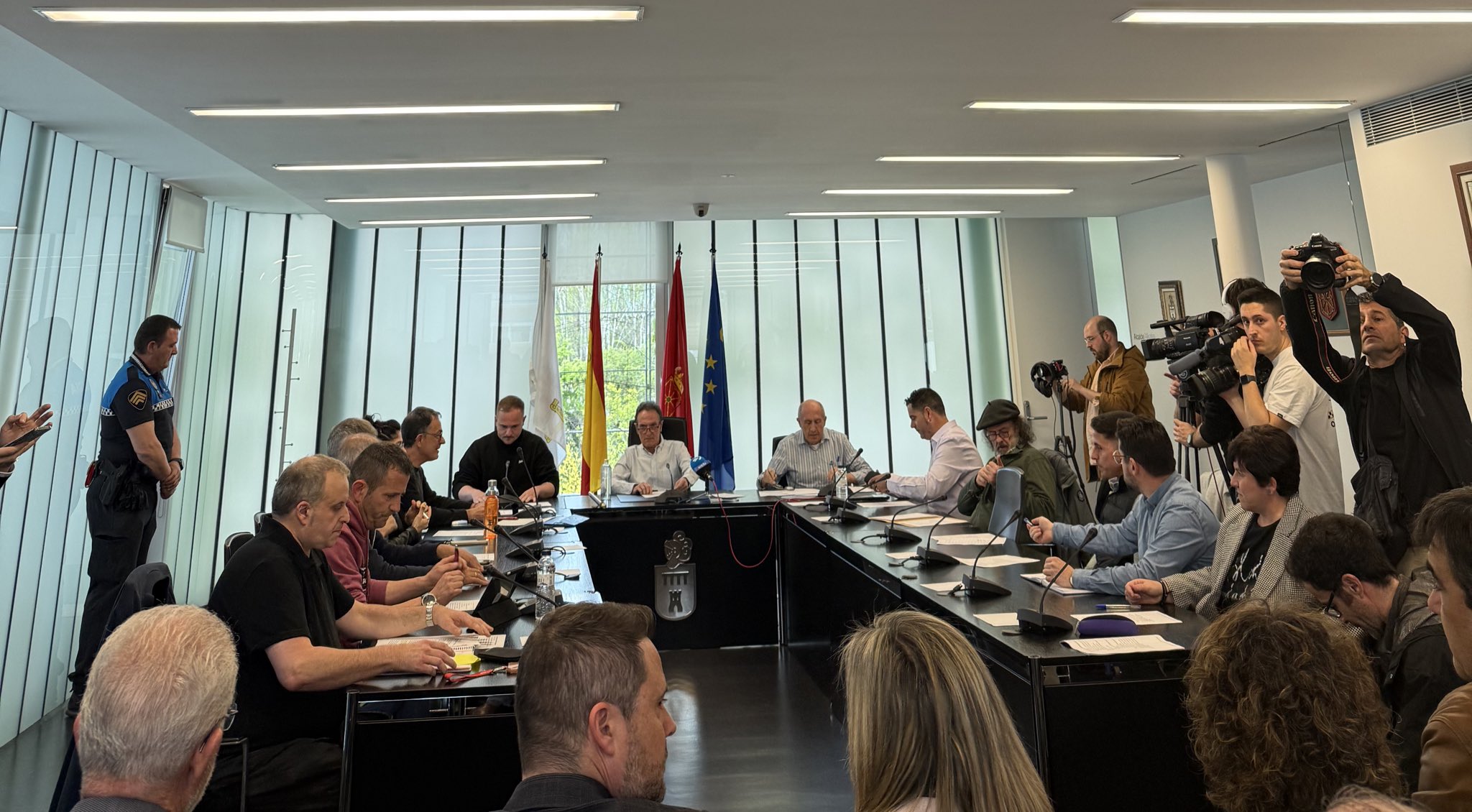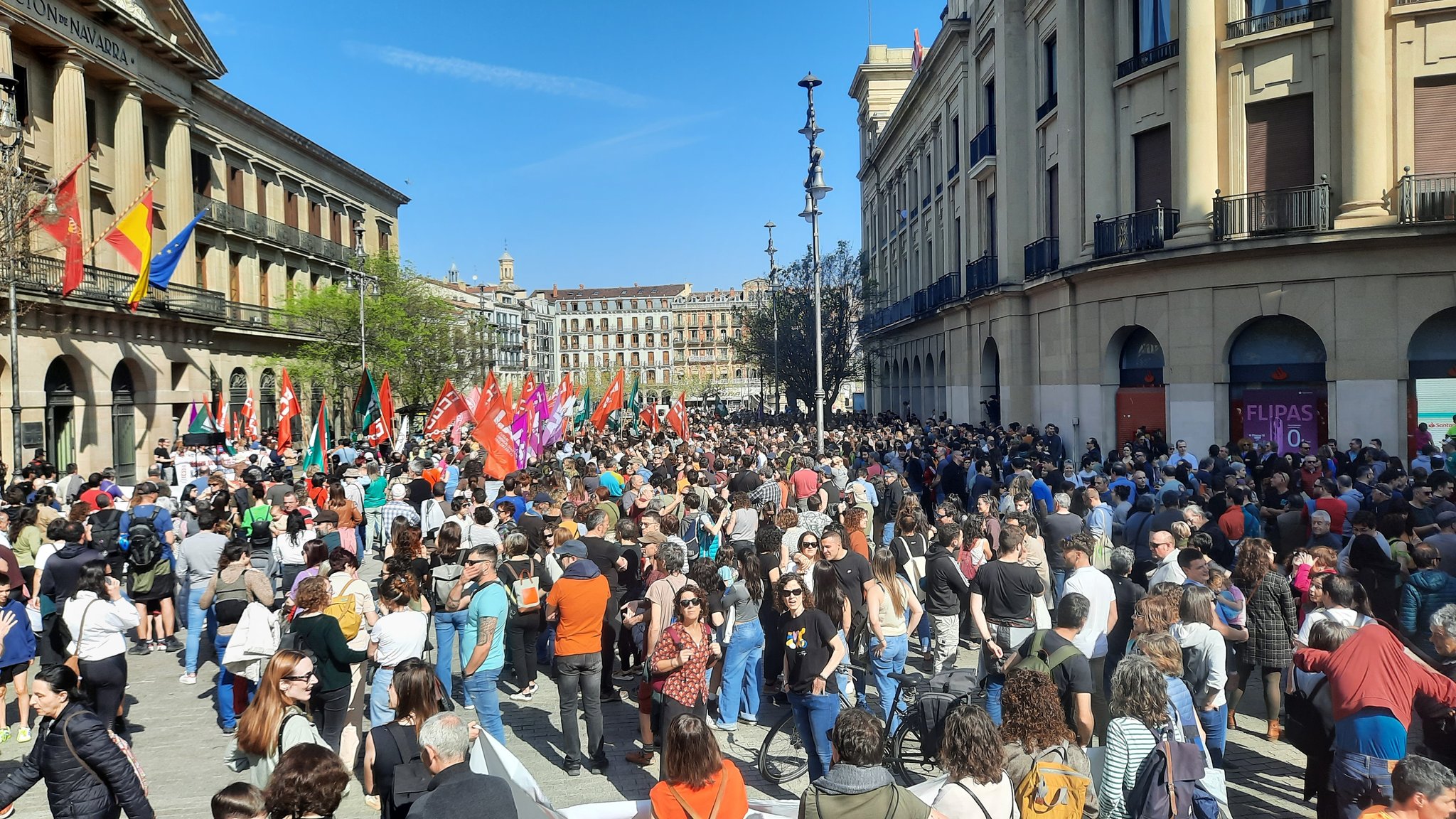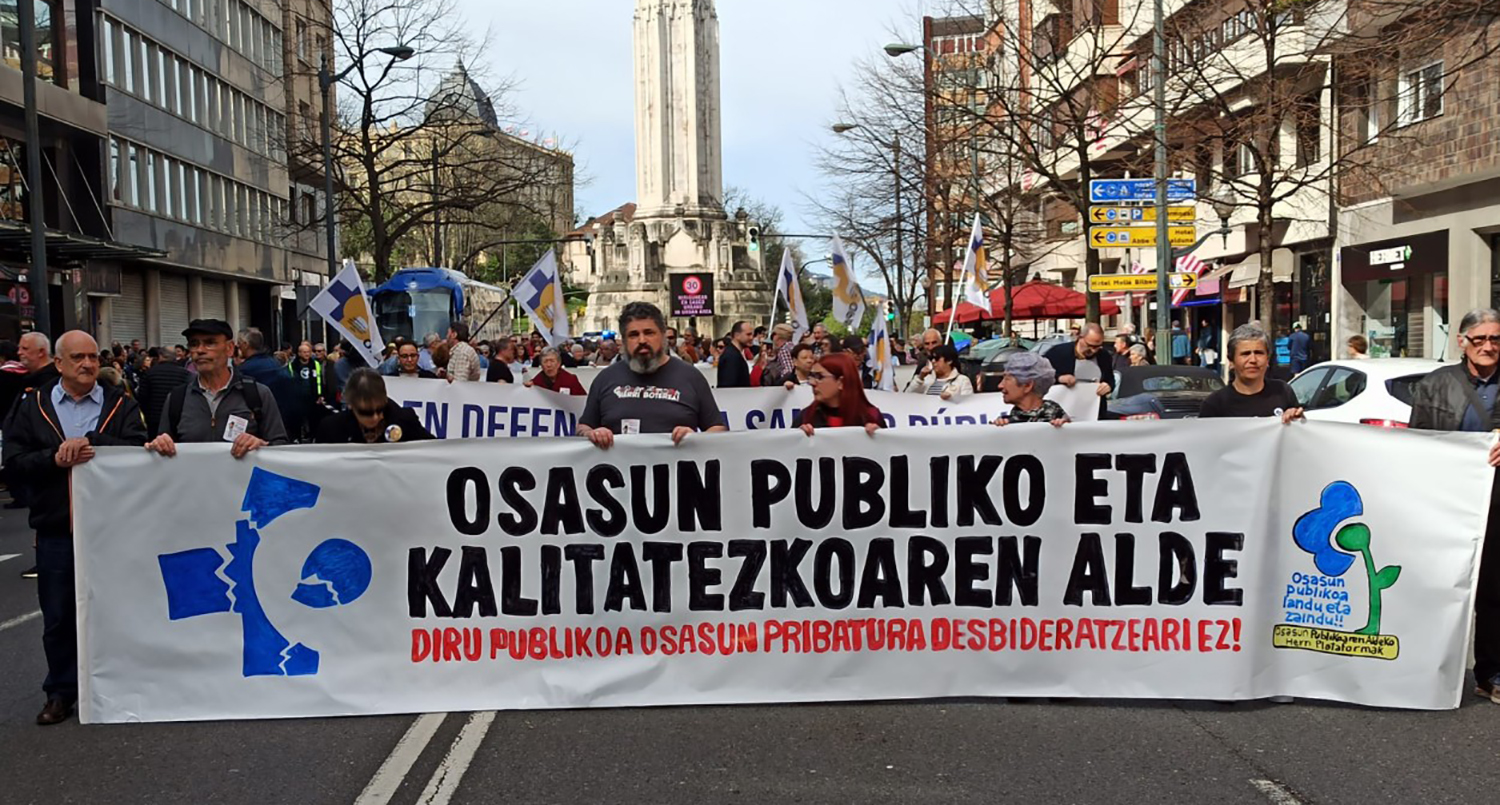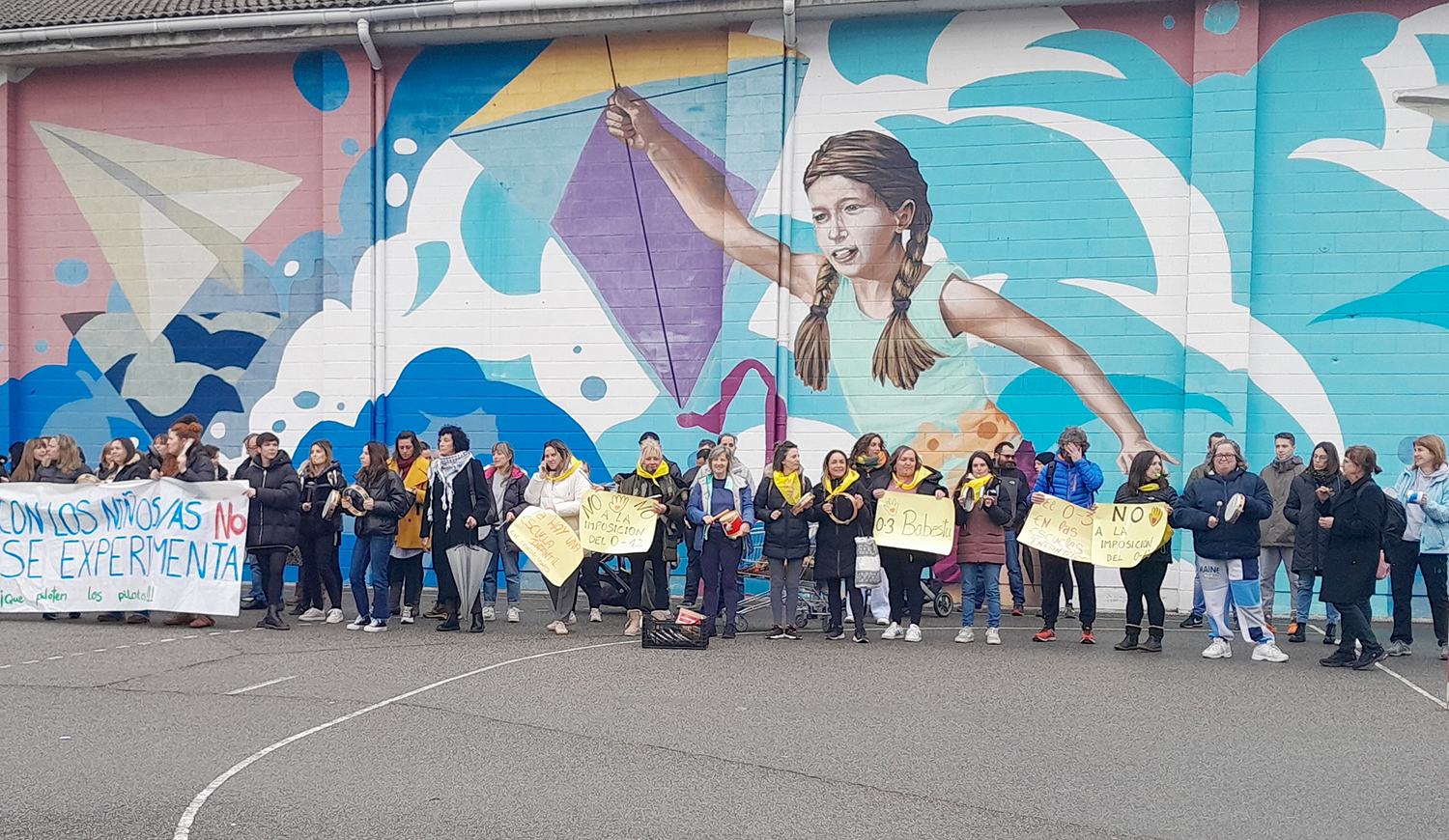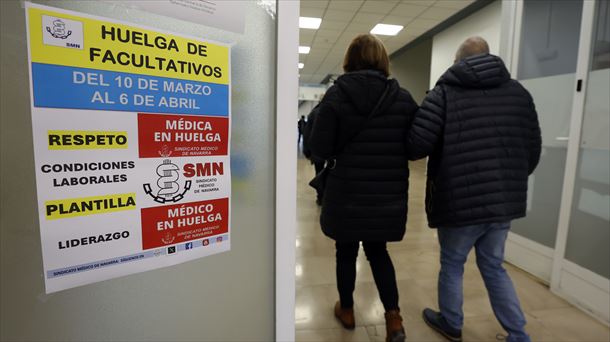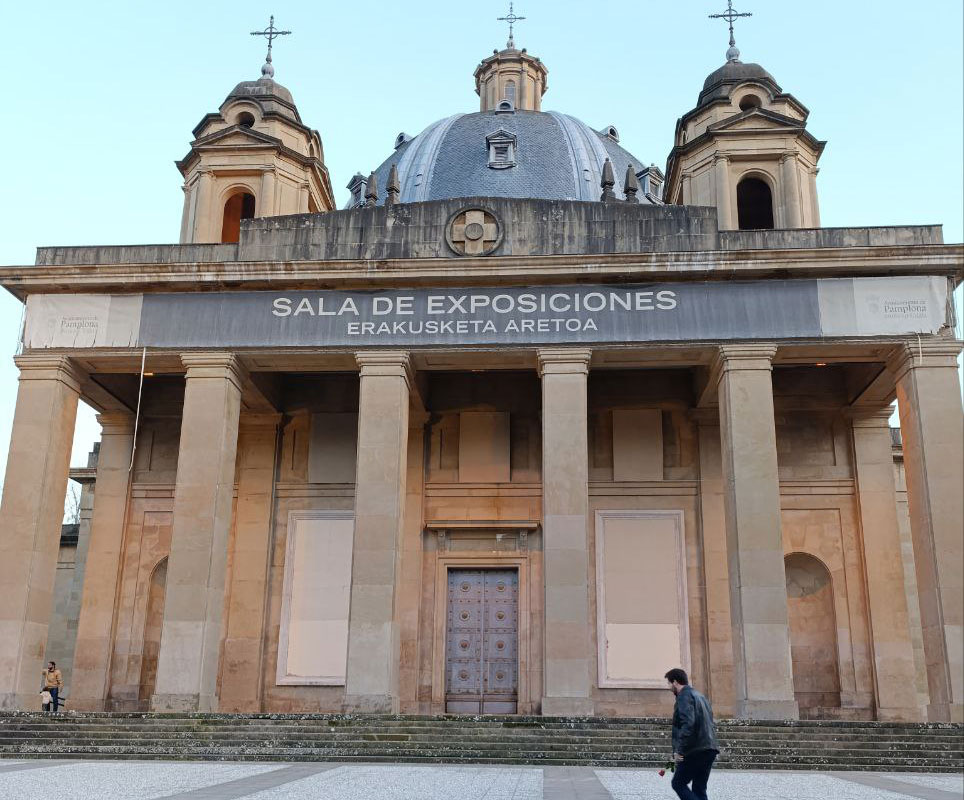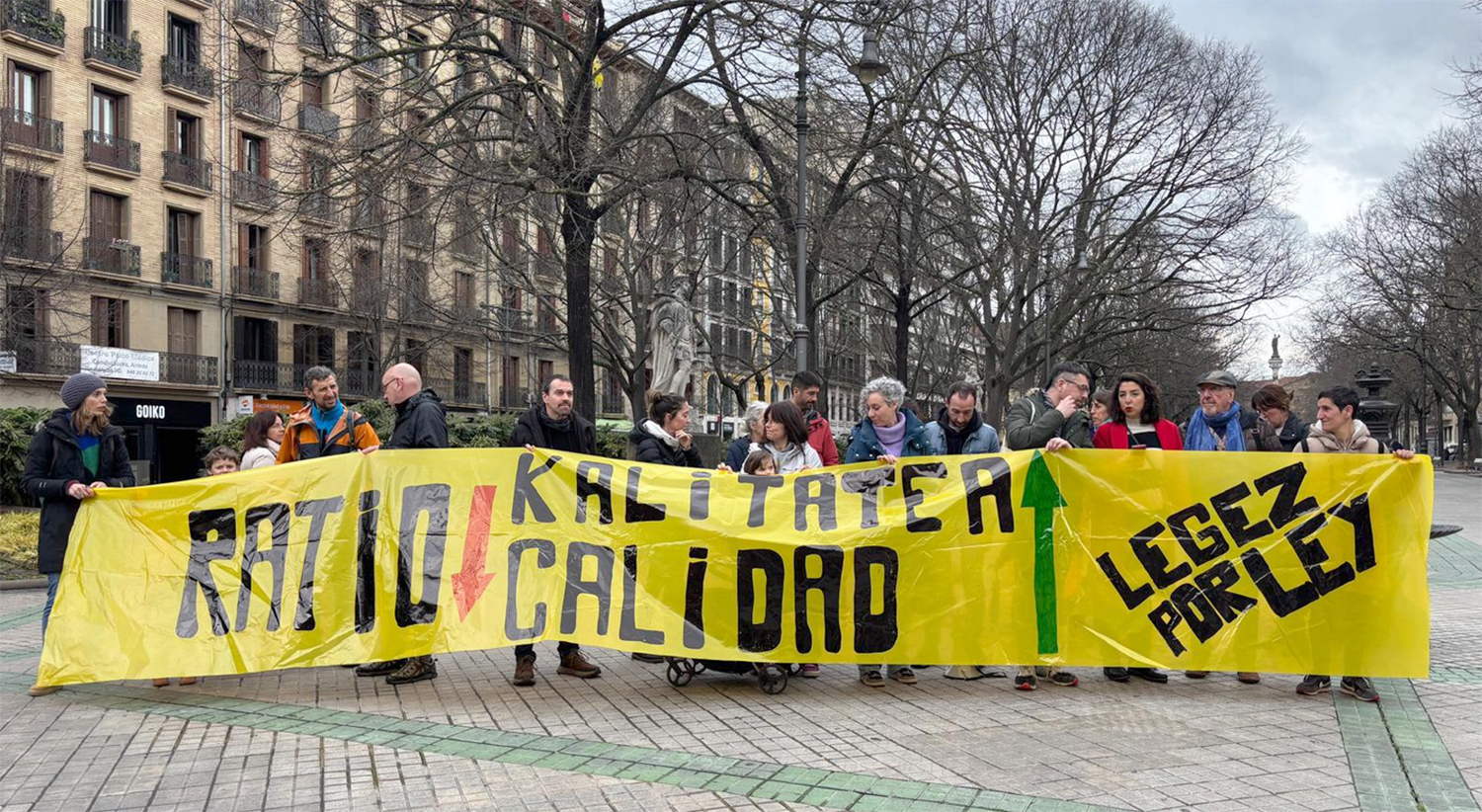"The best management is as close as possible"
- The local administration of Navarra consists of 272 municipalities and 378 councils. Now, once the reform of the municipal map has been agreed, they will concentrate on twelve counties with the aim of offering services that they would not otherwise be able to offer. The parties that have approved it in Parliament have considered it to be one of the most important projects of the legislature, but the road comes from the basis, from the process started three years ago from the municipalities and councils. Pablo Azkona is the president of the FNMC. He says he is happy, although he says that the challenge is not over.

He would be glad if he accepted the law.
We have been calling for the modernisation of the administration for years, and that is what we are responding to by reorganising the administration. That in itself is important. On the other hand, this law has reached its final destination based on a participatory process that gives it a clear impetus. The consensus has been clear: 61 per cent of the participants have agreed that the new figure should be the region. The law lacked Parliament's scrub. However, nothing is over here. On the contrary, we have a new framework for starting work.
What do you work on?
Once the law has been published, twelve counties must be formed, each with its own foral law. In addition, the reform refers to the amendment of 18 sectoral laws. We are therefore talking about reaching 30 laws.
The process that has been closed with the law kicked off in the FNMC. How do you experience it?
I am the president of the federation on this issue. When we presented our candidature in 2015, our challenge was to start from the foundation of local government reform. We received support and complied with the word. It was a complex process, both because of the number of people to participate and because of the complexity of the topic. Along the way, we've been learning things and changing our minds, and that's enriching. It has been a totally decentralized process and it has been very enriching to know the reality of peoples.
There is a lot of talk about the importance of this reform, but do you think that the public is aware of it?
Although it is very important, the issue has never been in the discourse aimed at citizenship, that is our greatest failure. I think we have failed, because we have not put at the centre of the debate what it will bring to the citizen. But here's an example. We are 600,000 inhabitants in Navarra, we are a small but very atomized community. If we want to maintain this idiosyncrasy of Navarre, with the scattered population groups and with the people living in rural areas, the local administration must guarantee tools so that people can continue to live there. Local authorities are not able to cope with many things.
For example?
.jpg)
The fact that a local entity is not able to offer an electronic service shows that we have to bring together a number of municipalities in order to provide unified responses. We have become accustomed to working with the mobile phone, with our bank or store, also with the administration. In Navarre we have 384 councils and a lot of municipalities that must comply with the same laws as the municipalities of Madrid or Pamplona. This work is undertaken by voluntary persons, without a legal structure that will help them. Some services need a minimum critical mass in order to be effective, and it is essential that local authorities join together. To open the tap at home and get the water out, you have to invest millions. Some entities are very small, but they have to offer those services if they do not want to cease to exist.
It could be thought that, grouped in a region of municipalities and councils, they can lose their autonomy.
This debate is fundamental because balance must be sought. We have worked to ensure the autonomy of the municipalities. In addition, each local entity will decide what is left to the region and what is not. What municipalities already offer through the communities is what the law attributes to the region. The counties are, in short, instruments at the service of councils and municipalities for the provision of services which they cannot otherwise provide.
Can they serve to cope with rural depopulation?
It is easy to pick it up on paper, but yes, of course, one of the main challenges for the Navarre administration is for people to stay on its territory. To do so, it is essential that citizens collect services in the place where they live. It is also true that depopulation is a phenomenon worldwide, but I believe that in Navarre it would be quite easy to deal with it, although to do so we need to address a number of issues: the road network, the implementation of broadband...
When cities grow, what weight does local administration have left?
The basic figure, according to the law, is the municipality. This means that the center is the municipality and that the rest of the entities are tools for it. The regions will only be used in cases where municipalities are unable to provide their services on their own. I am in favour of the municipality: the best management is as close as possible.
What are the next challenges?
I believe that we must continue to bet that the municipality is the centrepiece of the entire administration. To this end, structures and funding are essential. That's the challenge.
was born in Lodosa in 1980. In 2007, I was elected a councillor, with the help of LOIU, a candidate that we created among a large number of citizens. I'm mayor of Lodosa since 2011, with an absolute majority since 2015. I remember that in the last legislature there was a meeting in Tierra Estella, because the PSN proposed abolishing the councils, and there was a great stir. Then I began to realize the value of the councils, seeing that many understood them as forms of political participation. We began to bring together several mayors of Estella and to contact the rest of Navarre to create what has been called the Berriozar group. In 2015 we saw that there could be a majority to implement the reform of the city map, but for that we needed the presidency of the federation. That is when we presented my candidacy. And here I am.
Itxaron zerrendak gutxitzeko Osasunbideak hartutako estrategiak gaitzetsi ditu Plataformak
Mahai Orokorreko sindikatuek salatu dute Gobernuak utzikeriaz jokatu duela ordezkaritza sindikalarekin negoziatzerakoan, horren adibidea da Estatutu berriaren negoziazioan ezarri duen blokeoa. Gobernua Mahai Orokorrean gai horiek guztiak negoziatzera esertzeko ahalegin ugari eta... [+]
Haurreskolara beharrean, 0-3 urte bitarteko umea zuzenean ikastetxera bidaltzea, Haur eta Lehen Hezkuntza osoa (12 urtera arte) hartzen dituen zentro berera. Hori da Nafarroako Hezkuntza Sailak Burlatako Hilarion Eslava ikastetxean martxan jarriko duen proiektu pilotua eta... [+]
Maite Nosti diputatuak kargua utzi du alderdiarekin izandako desadostasunengatik, eta horrek kide bakar batekin utzi du alderdi faxista, talde mistoan sartzera behartuz.
Astelehenean abiatu da sindikatuak deitutako greba eta apirilaren 6 arte luzatuko da. Lan-gainkarga salatu eta baldintzak hobetzeko eskatu dute, baita mediku egoiliarrei karrera profesionala aitortzea ere.
33/2013 Foru Legeari Xedapen gehigarri bat gehitu zaio datozen aldaketak gauzatu ahal izateko, eta horren bidez ahalbidetzen da “erregimen frankistaren garaipenaren gorespenezkoak gertatzen diren zati sinbolikoak erretiratzea eta kupularen barnealdeko margolanak... [+]
Geroa Baiko lehendakari eta Nafarroako lehendakariorde izandakoa enpresa bati 2,6 milioi euroko diru-laguntzak ustez modu irregularrean emateagatik zegoen auzipetuta, Davalor auzia deiturikoan. Nafarroako Probintzia Auzitegiak erabaki du auzia behin betiko artxibatzea, legalki... [+]
Seme-alabek eskolan dituzten ratioekin kezkatuta, Arartekoari kexa helarazi zion guraso talde batek, eta orain zuzenean Parlamentuari egin diote eskaera, “legez berma dadin gure seme-alaben hezkuntzaren kalitatean oinarrizkoa den neurria, unean uneko aurrekontuez edo... [+]
Nafarroako Gobernuak ofizialki aitortu ditu gure lurraldean giza eskubideen urraketa larriak jasan zituzten Estatuaren indarkeriaren beste zazpi biktima. Horien artean, hitzez hitz “motibazio politikoko biktima gisa” aitortzen ditu Patxi Erdozain, Eneko Compains,... [+]
11 doctors in health care earn 230,000 euros each year, one of the practices 18,000 euros
This Thursday, EH Bila asked the Government of Navarre to investigate and correct this situation in the plenary session of the Parliament of Navarre. The UPN and the PP have joined the... [+]











